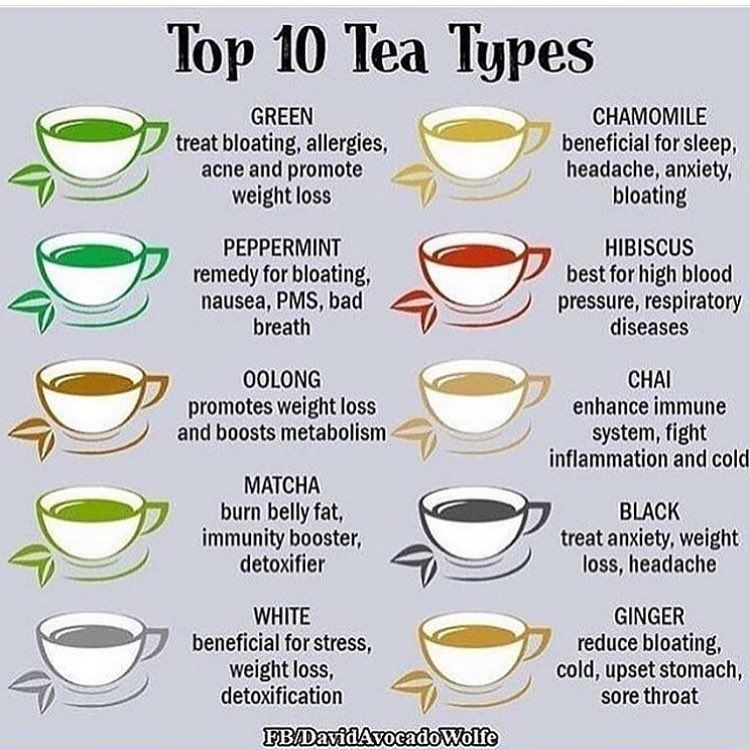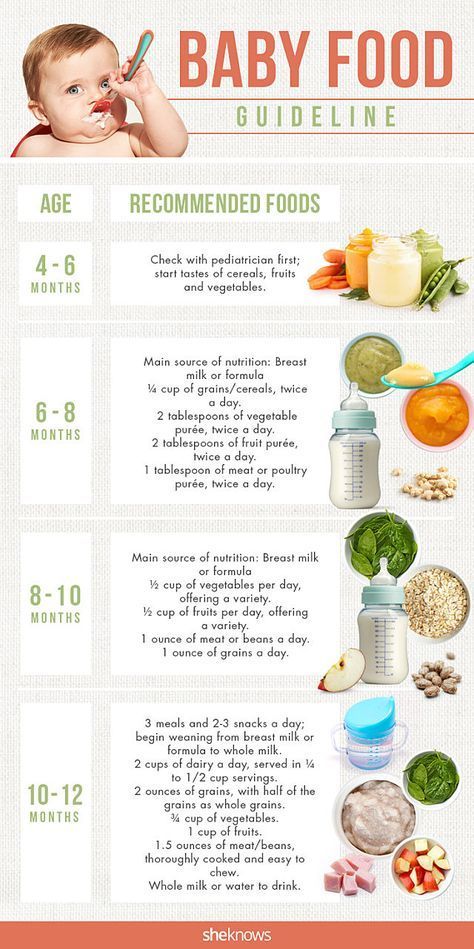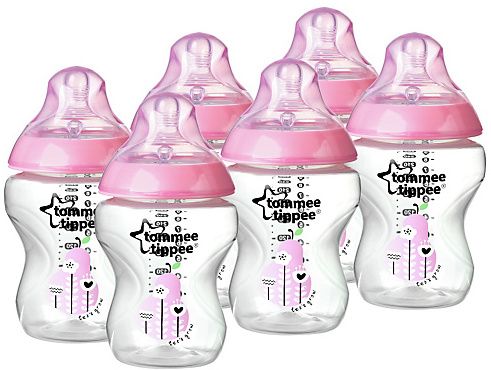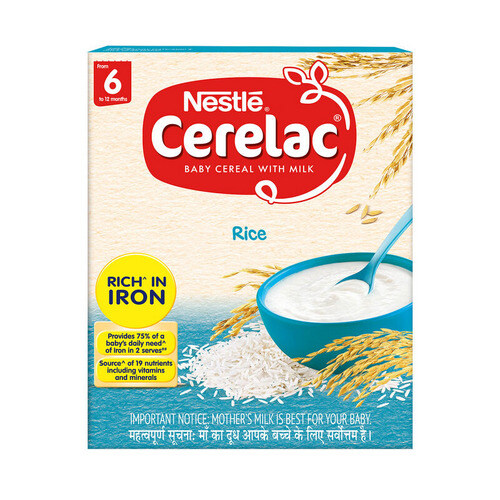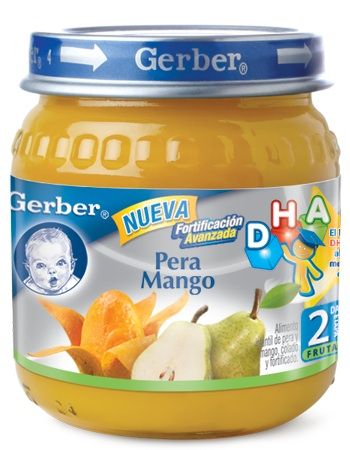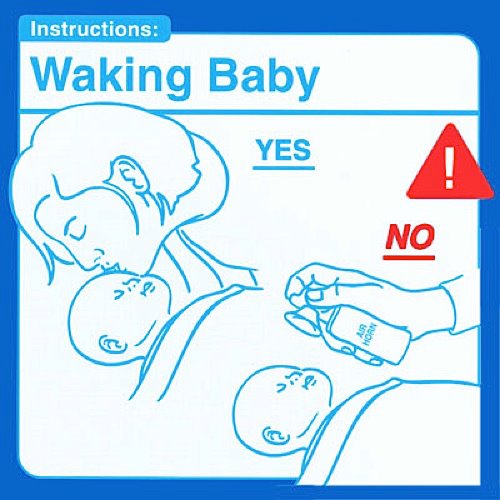Baby upset stomach after first solid food
Baby Unsettled At Night Since Starting Solids
·
Written by Jo Charnock
·
Written by Jo Charnock
On this Page:
- Scenarios and reasons why your baby is unsettled at night since starting solids
- When will my baby be ready for solids?
- Do solids help baby sleep through the night
- Some facts about milk and solids
- Important things to remember
Is your baby unsettled at night since starting solids? Or is your 6 month old gassy after starting solids? Are you concerned your baby is not sleeping enough, or your baby won’t sleep after introducing solids? This blog article aims to dispel some of the uncertainties around introducing solid foods and why your baby’s sleep pattern may be disturbed. Read on for more info!
Scenarios and reasons why your baby is unsettled at night since starting solids:
First, let’s deal with the 4 scenarios you can expect your baby to follow when introducing solids:
- The ideal; your baby was sleeping well and continues to sleep well.
- An improvement; your baby was sleeping badly but now sleeps well.
- No change; your baby slept badly and continues to sleep badly.
- Your baby was sleeping well but now doesn’t.
If you fall into points 1 or 2 then great, you have no worries, but if you fall into points 3 or 4, it sucks. Hopefully, this article will help.
YOU MAY ALSO BE INTERESTED IN:
IS YOUR 1 YEAR OLD SLEEPING A LOT AND NOT EATING?
Now let’s deal with the
5 reasons why your baby is unsettled at night since starting solids:Timing
When you first start to introduce solids it’s important to remember that it’s to supplement breast milk or formula feeds and not to replace them. So make sure you always start with a milk feed. Wait a while and then introduce solids a small amount at a time. Try to make sure you are not feeding too close to nap or sleep time so your baby has time to digest the solid food.
So make sure you always start with a milk feed. Wait a while and then introduce solids a small amount at a time. Try to make sure you are not feeding too close to nap or sleep time so your baby has time to digest the solid food.
Think quality, not quantity
Your young baby should still be getting most vitamins and nutrients from milk. If you are feeding your baby too many solid foods and not enough milk, they may not be getting all the energy they need and will still be hungry. This will result in your baby sleeping badly and waking up for extra night feeds.
Distractions
Introducing solids usually happens between 4-6 months of age. This coincides with your baby’s increased curiosity about their surroundings. Your baby may become distracted during feed times and not take in as much milk as they should be doing. This has nothing to do with solid food but is part of natural development. It’s important to make sure your baby is taking enough milk, otherwise, they will wake for more night feeds.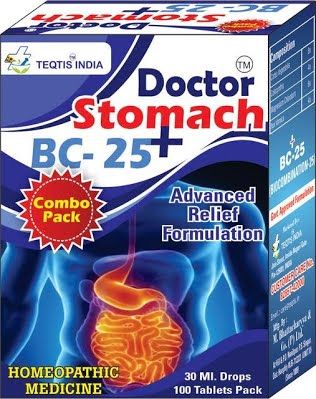 Try to regulate feeding times and be in a safe quiet place and try using tools that encourage efficient eating such as reusable food pouches and pouch spoons.
Try to regulate feeding times and be in a safe quiet place and try using tools that encourage efficient eating such as reusable food pouches and pouch spoons.
Tummy upsets
It’s quite normal for babies to have tummy upsets when they start solid foods. Your baby’s digestive system has to adapt to the change from an all-milk diet to one that includes solid foods. So, this may cause your 6 month old to be gassy after starting solids. Unfortunately, it may mean a few sleepless nights.
It may not be the food!
Is your baby unsettled after a night feed? This may be true, but baby sleep problems can be caused by many other things other than feeding. A change in routine, teething or simply being too hot or too cold can all result in your baby not sleeping. Or it may simply be caused by your baby’s stage of development.
When will my baby be ready for solids?
Starting your baby on solids is an exciting time and a developmental milestone. But it can be confusing for a new mum.
But it can be confusing for a new mum.
Experts recommend to start your baby on solids at around 4-6 months of age. So the signs to look out for that your baby is ready include:
- Your baby has good head & neck control,
- They can sit up on their own or in a baby chair,
- Your baby shows an interest in others’ food, such as watching what you eat and reaching for food,
- They open their mouth when presented with a spoon,
- Bub can pick things up between the thumb and forefinger.
However, you followed the signs and now you’ve noticed your 6 month old is gassy after starting solids. Or you’re worried about a baby stomach ache after starting solids. The above signs are a guide only.
If your 6 month old is gassy after starting solids or has a baby stomach ache, it may be caused by starting solid foods before your baby’s digestive system is ready. Babies can suffer from gas because they have immature digestive systems and are swallowing air during feeds. If you are concerned about this, pause with the solids for a few days, or consult your doctor.
If you are concerned about this, pause with the solids for a few days, or consult your doctor.
Click for more info about starting solids.
Click to shop solid feeding.
Do solids help baby sleep through the night
Some studies still say that giving your baby solids will help with sleep. The logic behind this theory is relatively simple: babies wake up when they are hungry, so starting solid food should help your baby sleep better (and longer) since their tummy is more full. Unfortunately, like most things involving a baby, the reality is not that simple. Although it is true that babies wake up when they are hungry, babies wake up for lots of other reasons, too.
What to feed a 6 month old baby at night?
Babies between 4 – 6 months are developmentally able to sleep through the night without a feed. However, this doesn’t always happen. Breast milk or formula is still your baby’s primary source of nourishment, but if you are wondering what to feed a 6 months old baby at night the following list is useful:
- Oatmeal or porridge – is an extremely healthy meal for both babies and adults.
 Oatmeal is an excellent source of melatonin which helps trigger insulin production, which in turn helps to induce sleep!
Oatmeal is an excellent source of melatonin which helps trigger insulin production, which in turn helps to induce sleep! - White rice – several scientific studies have found that rice helps people sleep better and faster. Try making a simple rice pudding to feed your baby before putting them down to sleep.
- Bananas – bananas are loved by both mums and babies for their soft texture and sweet taste. But did you know that they contain a good amount of magnesium which is a natural muscle relaxant? Relaxed muscles mean your baby should feel sleepier after dinner and should help them sleep better.
- Dairy products – for adults and children alike, a warm milky bed time drink helps everyone to sleep better. But did you know other dairy products like yogurt and cheese can help your little one feel sleepy? Dairy contains essential amino acids that help with a better nights sleep.
Some facts about milk and solids
- Milk is still the most important food for a baby up until they’re 8-12 months old, so you should always offer a milk feed before solids until they reach this age.
 In the beginning, solid food works like a top-up for your baby, rather than replacing actual milk feeds.
In the beginning, solid food works like a top-up for your baby, rather than replacing actual milk feeds. - After 8 months, you can start to offer solids before milk feeds and gradually start to replace some of the milk feeds during the day (eg, lunch).
- Babies need a combination of protein and iron in their diet from 6 months onward. This helps them feel full enough to sleep well at their lunchtime nap and also overnight. Breast milk contains very little to no iron, but babies are born with enough iron stores to last their first 6 months or until you start introducing solids.
- Only give protein to babies under 10 months at lunchtime, so they have enough time for it to digest. Protein given at dinner to a baby younger than 10 months can cause baby sleep problems as their fragile digestive system will struggle to cope.
Important things to remember
Starting solids will not be the miracle cure for a good nights sleep. It will take time for your baby to adapt to solids and to be taking enough for them to be ‘full’. Introduce new foods slowly and allow a few days in between to check for any allergic reactions.
Introduce new foods slowly and allow a few days in between to check for any allergic reactions.
Introducing solids can cause tummy upsets which may result in your baby not sleeping enough. Keep an eye on your baby’s nappy, how often they need changing and the colour and texture of the poop. If you are concerned about your baby’s bowel movements always consult a health care worker.
References
The Baby Center 2018, Why is my baby sleeping worse now he’s started solids?, Baby Center, viewed at 02 Jan 2020, URL
Glow Dreaming, 2019 Introducing Solids: How it can affect your babies sleep, Glow Dreaming, viewed at 01 Jan 2020, URL
Baker, N 2019, SOLIDS! The when, what, how of solid food.The Little Ones, viewed at 05 Jan 2020, URL
Tagged in
- Starting solids
Continue reading
Food Blender vs Food Processor
How To Warm A Baby Bottle Safely
Do I Really Need A Baby Food Maker & Processor?
FAQ: Introducing Your Baby to Solid Foods | Patient Education
- When will my baby be ready to start solid foods?
- Why does my baby need solid food?
- What foods should I offer my baby first?
- How do I introduce my baby to solid food?
- Can I put the cereal or baby food into my baby's bottle?
- What are the next foods I can give my baby?
- What should I look for when buying baby food?
- Can I make my own baby food?
- What foods should I not give my baby?
- What are the signs my baby is allergic to a food?
- How will my baby's stools change once I introduce solid food?
- How often should I feed my baby?
When will my baby be ready to start solid foods?
Most babies grow beautifully on breast milk or formula for the first 6 months, and do not need any solid food before this age.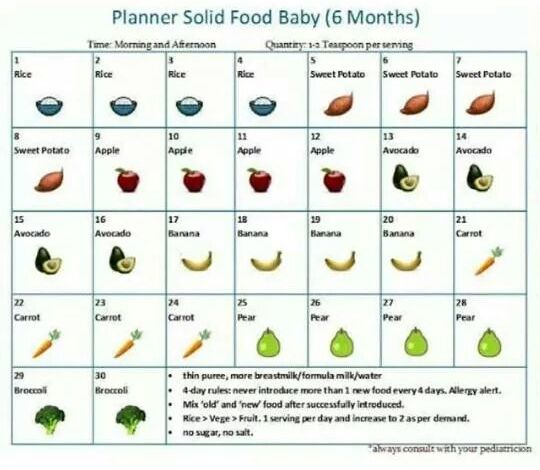 Also, before 6 months of age, most infants have a reflex that causes them to push their tongue against a spoon, making it difficult for them to swallow solid food properly. Introducing solid foods before 5 to 6 months of age may also increase the baby's risk of developing food allergies and obesity.
Also, before 6 months of age, most infants have a reflex that causes them to push their tongue against a spoon, making it difficult for them to swallow solid food properly. Introducing solid foods before 5 to 6 months of age may also increase the baby's risk of developing food allergies and obesity.
Your baby will show readiness to eat solids in several ways:
- Your baby's physical development allows him or her to sit without support. When babies can sit easily, they have usually lost the tongue thrust reflex.
- Your baby watches you eat and demonstrates an interest in food.
- Your baby is able to reach out and grab objects.
Why does my baby need solid food?
By 6 months of age, your baby has outgrown the amount of iron he or she received from you before birth. Now your baby needs an additional iron source to prevent anemia. Eating solid food also helps your baby learn many new things, including how to swallow food and, eventually, how to feed him or herself.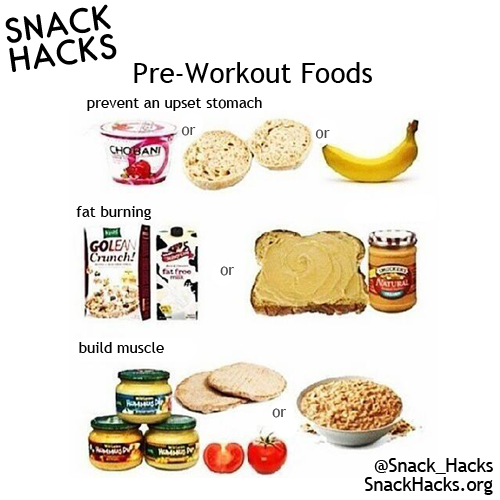 It also exposes babies to many new tastes and textures.
It also exposes babies to many new tastes and textures.
However, between 6 and 9 months of age, most of the calories your baby needs to grow will still come from breast milk or formula. So, always feed your baby breast milk or formula before offering solid food.
What foods should I offer my baby first?
Since babies need extra iron, their best first food is an iron-fortified baby cereal. Once solid foods are introduced, babies do not absorb as much iron from breast milk — another reason to make sure that your baby's first food is a good source of iron.
How do I introduce my baby to solid food?
- Choose a time when you and your baby are both relaxed and ready to enjoy mealtime.
- Prepare an iron-fortified baby cereal, such as rice, barley or oatmeal infant cereal. Mix several tablespoons of dry cereal with formula, water or breast milk. The cereal should be the consistency of cream of wheat — smooth and semi-liquid.
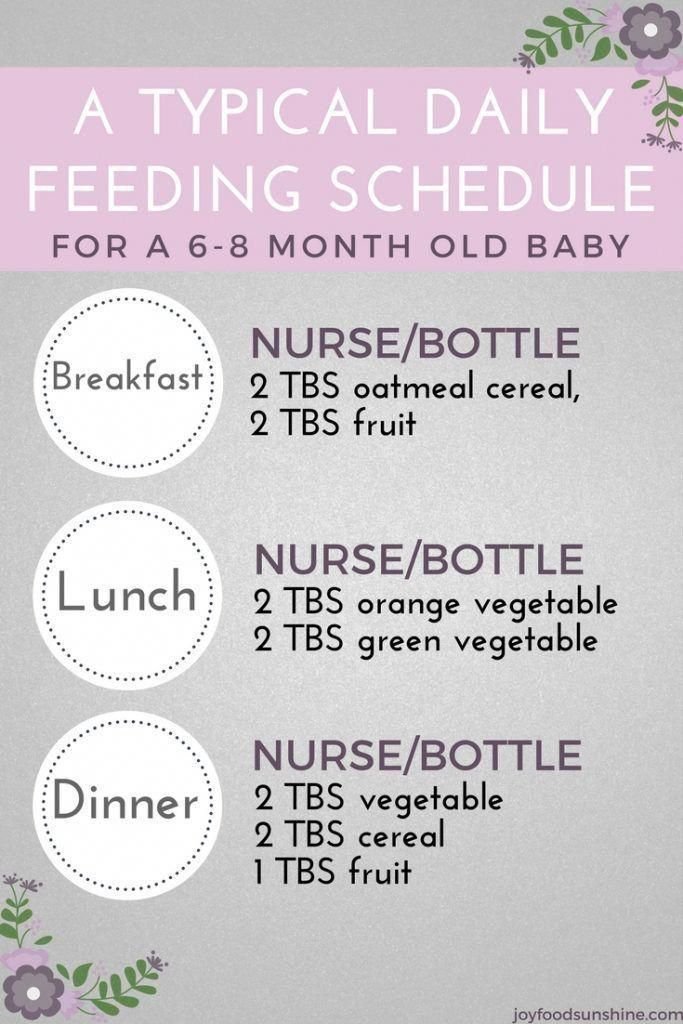
- Sit your baby in your lap or in a highchair.
- Use a small spoon to feed your baby.
- Your baby may look a little confused at first, and most of the first feeding may end up on his or her face, hands and bib. Don't worry. Your baby will gradually become more comfortable with feedings. Try talking gently to your baby to help him or her relax.
- As your baby begins to enjoy mealtimes, increase the consistency of the cereal so it is like oatmeal. You can also gradually increase the amount of food you offer.
- If your baby spits out the cereal, cries or isn't interested, stop the feeding. You can try again in a few days.
Can I put the cereal or baby food into my baby's bottle?
Please don't put cereal or baby food in a bottle. Your baby needs to learn the difference between liquid and solid foods. Babies need to learn how to move solid food around in their mouth, how to take bites from a spoon and rest between bites, and to stop eating when full.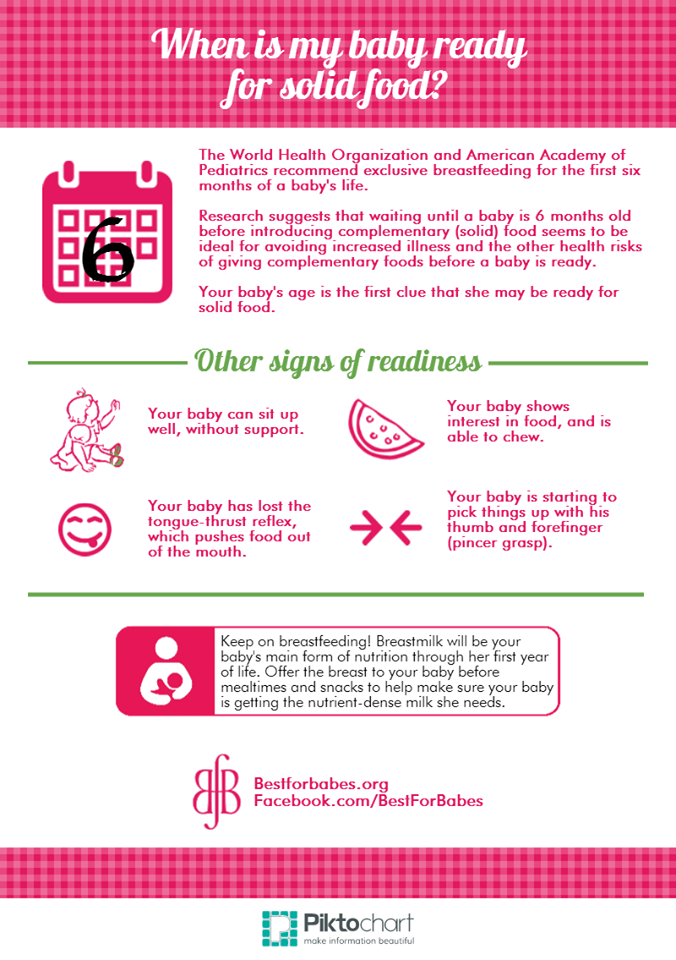 These are all experiences that help babies develop good eating habits.
These are all experiences that help babies develop good eating habits.
What are the next foods I can give my baby?
You can give plain baby cereal for several months, but most parents enjoy offering their baby a variety of new foods.
After you've given your baby several different types of cereal, consider offering a vegetable or meat. Chicken or turkey is a good source of zinc for breast-fed infants. After your baby is enjoying several different vegetables, you can then try fruit.
After introducing a new food, wait four to five days before giving your baby any new foods, so you can watch for signs of an allergic reaction.
Be aware that cereal, applesauce and bananas can cause constipation. If your baby becomes constipated, you may try giving him or her an ounce or two of diluted prune or pear juice. You can mix your baby's cereal with prune or pear juice. Or, try offering extra fruits like plums and peaches.
What should I look for when buying baby food?
- Choose single-item foods, like squash or bananas.
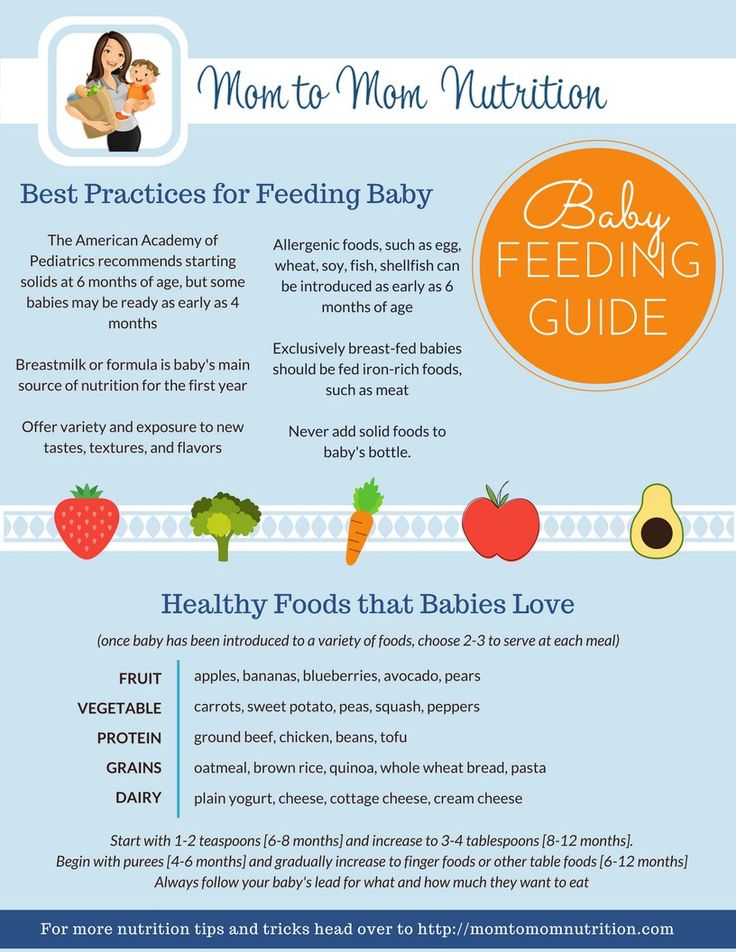
- Always read labels. Make sure there is only one ingredient, and look for any added ingredients that can cause allergies, such as orange juice.
- Avoid mixed baby foods, like baby dinners. They have less nutritional value and aren't a good value for the money.
- Don't give your child "baby desserts." They add extra calories without being nutritious.
Can I make my own baby food?
Certainly. If you do, please remember:
- Do not add salt, sugar or seasonings to your baby's food.
- You can freeze extra food in ice cube trays, and defrost small portions later when needed.
- Know that some vegetables, such as carrots, beets, spinach, collard greens and turnips, can contain nitrates, a chemical that can cause an unusual type of anemia. Don't cook these foods for your baby. Store-bought baby food has had the nitrates removed and is fine.
What foods should I not give my baby?
The American Academy of Pediatrics now recommends giving peanut-containing products to infants at "high risk" of developing allergies between four and 11 months, in countries where peanut allergies are common.
Scientific evidence suggests that delaying the introduction of peanuts may be linked to a greater risk of developing peanut allergies.
However, babies who experience severe eczema, egg allergy or other related diseases in their first four to six months may benefit from seeing an allergist who can give patient-specific advice on early introduction of peanuts, the academy says.
Do not give your baby any honey for the first year of life. It can cause infant botulism, a type of food poisoning that can lead to death.
Also, remember that some foods can irritate your baby's digestive system. Avoid highly spicy or greasy foods. Also avoid foods that could easily cause choking, such as small candies, popcorn, raisins, grapes, or hotdogs cut in circles.
What are the signs my baby is allergic to a food?
If your baby as several episodes of vomiting after trying a new food, has diarrhea, develops a rash, or has swelling of the lips or eyes, he or she may be having an allergic reaction.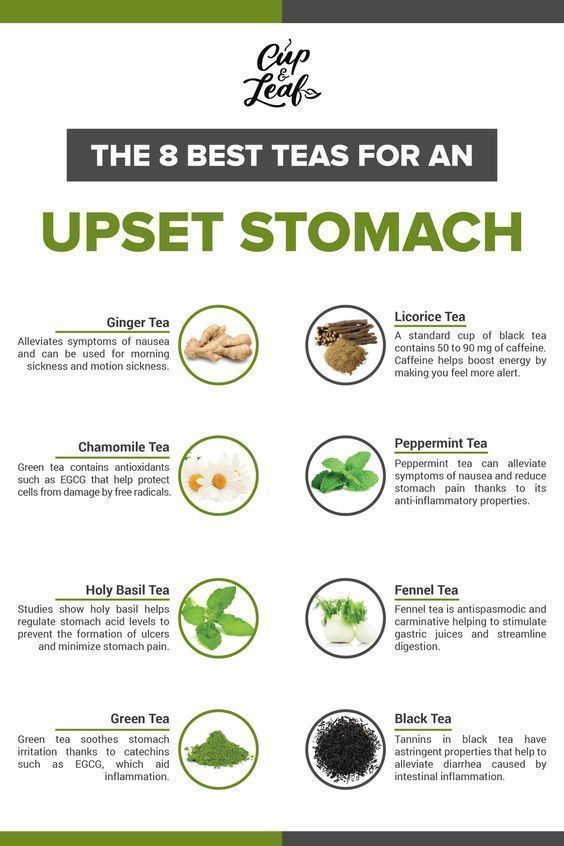 Stop the feeding and call your baby's doctor.
Stop the feeding and call your baby's doctor.
How will my baby's stools change once I introduce solid food?
Your baby's stools may become firmer and may have a different, stronger odor. Some foods will appear in the stool undigested, and you may see peas, corn or tomato skins in your baby's diaper. Bananas often cause little black threads to appear in the stool. This is just the center part of the banana.
If your baby's stools become extremely loose, watery or full of mucous, the baby's intestinal tract may be a little irritated. Consider removing the new food from your baby's diet for a while. Irritation around the anus does not mean the baby is allergic to a food.
How often should I feed my baby?
Since most of your baby's nutrition still comes from breast milk or formula, you do not need to worry about how often you are offering solid foods. Feed your baby when it is fun, easy and convenient for you. Most babies enjoy eating once a day at first. Parents should let babies show when they are interested and how much they want to eat.
Parents should let babies show when they are interested and how much they want to eat.
Used by permission of Jane E. Anderson, M.D.
Complementary feeding problems and solutions
- Nutrition A to Z
Unfortunately, the introduction of complementary foods to a child does not always go smoothly, as they say, "without a hitch." Some babies react sharply to new food and their parents may face such troubles as:
- constipation in the baby after the introduction of complementary foods;
- indigestion in a baby;
- the occurrence of an allergic reaction in a child to new, seemingly completely non-allergenic products.
In addition, sometimes picky little ones flatly refuse to even try unfamiliar "adult" foods, preferring breast milk or adapted infant formula. By the way, babies who are breastfed more often "sin" by refusing complementary foods, while "artists" usually gobble up the offered vegetable purees, cereals, kefir, etc. with appetite. Although there are exceptions.
with appetite. Although there are exceptions.
Naturally, even small difficulties sometimes greatly upset young parents and often push them to commit typical mistakes, the consequences of which have to be corrected for a long time and often with the assistance of pediatricians and gastroenterologists.
Remember: many parents face difficulties in the beginning of the introduction of complementary foods, and most of the small troubles that seem to you “universal tragedies” can be eliminated in just a couple of days.
What should be the baby's stool after weaning
It is quite natural and logical that after the introduction of complementary foods, the baby's stool changes. However, these changes often cause real panic in inexperienced parents! On the thematic forums, you can find messages: “The child poops green! What to do?”, “During the whole day, my daughter went “big” only once. Is she constipated?”, “I found undigested pieces of an apple in the diaper. Is this intolerance?!" , etc. For experienced parents, such topics may seem ridiculous, but for young "for the first time" mothers, this is a real disaster. Let's try to figure out what a child's normal stool should be like after getting to know the first "adult" food.
Is this intolerance?!" , etc. For experienced parents, such topics may seem ridiculous, but for young "for the first time" mothers, this is a real disaster. Let's try to figure out what a child's normal stool should be like after getting to know the first "adult" food.
A baby's stomach is not like an adult's stomach. He accepts new food "carefully and with caution." Often, the first courses of complementary foods are not completely digested, as a result of which the stool turns the same color as the "food". For example, mashed young zucchini or broccoli can give the baby's stool a greenish tint, carrots and pumpkin can “give” a bright orange color, and healthy beets, respectively, red. If, in addition to changing the color of the contents of the diapers, everything is as usual, the baby is cheerful and cheerful, does not suffer from loss of appetite and does not “complain” about pain in the tummy, there is no reason for concern.
Further. Unlike breast milk or an adapted formula, "adult" food lingers longer in the intestines, it takes a baby many times more time to digest it. Accordingly, the frequency of bowel movements also changes. Normally, after the introduction of at least one complementary food, the child poops 1-2 times a day. In some cases, especially in children who are breastfed and breast-fed on demand, the frequency of bowel movements can range from 1-4 times a day to 1 time in two or three days. If at the same time the baby feels good, there is no reason for concern.
Accordingly, the frequency of bowel movements also changes. Normally, after the introduction of at least one complementary food, the child poops 1-2 times a day. In some cases, especially in children who are breastfed and breast-fed on demand, the frequency of bowel movements can range from 1-4 times a day to 1 time in two or three days. If at the same time the baby feels good, there is no reason for concern.
Also, after the introduction of complementary foods, the consistency of the stool also changes. If earlier the feces were mushy or completely “liquid”, then after getting acquainted with new dishes, it becomes denser. This is completely natural, and indicates that the child tolerates the transition to new food well.
What if it's constipation?
First of all, parents should understand that not every stool retention in a child after the introduction of complementary foods is constipation. If the child himself poops every 2-3 days, and at the same time his stool is pasty or mushy, and the baby himself is cheerful, cheerful and full of energy, eats well and does not complain about sleep, then there is no reason for concern. Most likely, this mode of bowel movement is a physiological feature of your child.
Most likely, this mode of bowel movement is a physiological feature of your child.
The situation is completely different if the baby has difficulty emptying the intestines: the child may refuse food, be capricious, not fall asleep for a long time, etc., while his stool becomes dense, often resembling large peas. In this case, the child needs the help of adults.
The first thing parents should do is to "revise" the baby's menu, excluding all new dishes from it and increasing the proportion of liquid. As for "laxatives", it is better not to rush with them. The same applies to the "cleansing enema" so beloved by many parents. The fact is that any artificial stimulation of the intestines at an early age can provoke “addiction” and, as a result, an already grown child will not be able to “go to the potty” without outside help.
Remember: any laxatives can be used only after consulting a pediatrician. Moreover, most laxatives, even “children's” and over-the-counter ones, are contraindicated for children under one year old.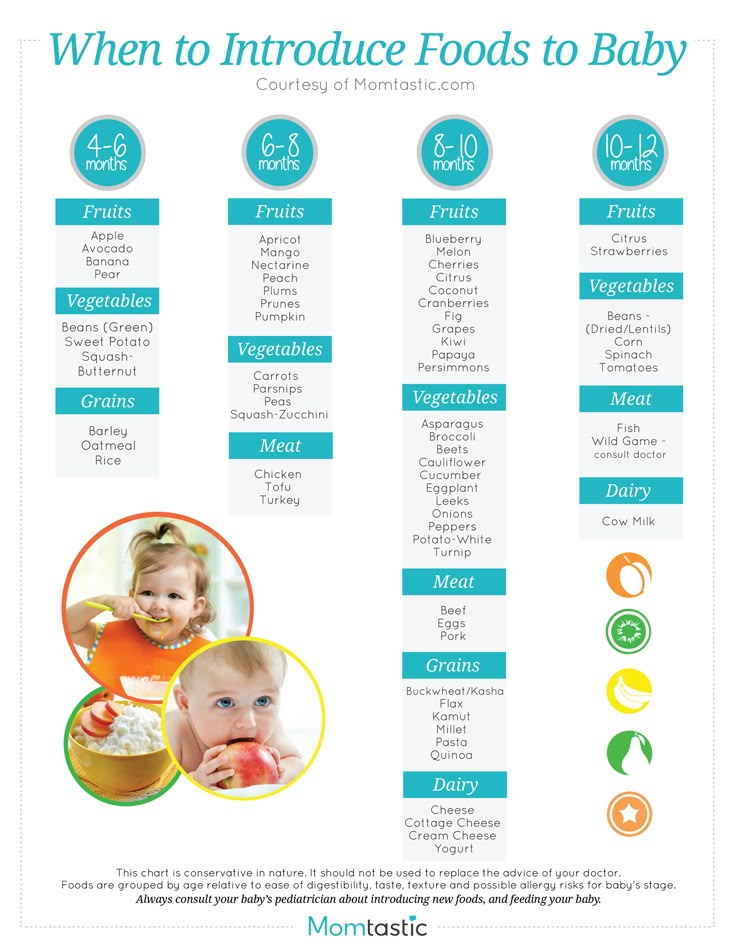
Indigestion
An upset stomach in a baby or simply diarrhea is a fairly common reaction to new foods on the menu. As a rule, bowel movements in this case occur within the first two hours after ingestion of "inappropriate" food. That is why pediatricians recommend offering new products to the baby in the morning, so that in case of an unexpected reaction from the gastrointestinal tract of the crumbs, parents can quickly take action.
First of all, in case of indigestion, the introduction of complementary foods should be postponed for some time. It is also important to prevent dehydration: in babies, it can occur very quickly. To do this, it is recommended to give the child clean water as often as possible if the baby is artificially fed or applied to the breast if the baby is breastfed. By the way, mother's milk is considered the best cure for any digestive problems, so additional medications are prescribed for "babies" only in exceptional cases.
Please note: if a child 6 months of age or older has more than 5 bowel movements per day, you should immediately consult a doctor to prescribe adequate therapy.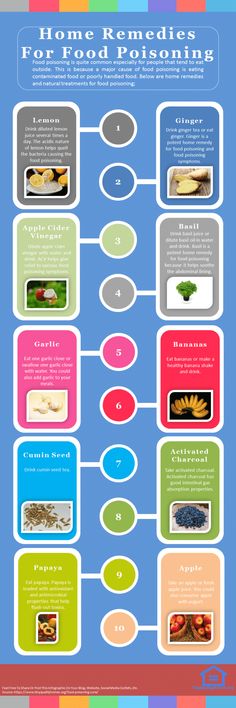
Complementary feeding and allergies
Due to the immaturity of the child's gastrointestinal tract, as well as certain hereditary factors, an allergic reaction may occur after the introduction of a new product into the baby's diet. As a rule, a food allergy in a baby manifests itself in the form of reddening of the cheeks and / or rashes on the skin, resembling a nettle burn. In addition, an allergy to a certain product can be expressed in the form of indigestion, increased formation of "gas", inflammation of the mucous membranes, etc.
With any suspicious reaction of the child's body, it is necessary to immediately suspend the introduction of complementary foods. In order to determine which product the baby reacted to, parents should keep a food diary from the first day of introducing complementary foods. If the moment was missed and it is impossible to accurately determine the cause of the allergy, all complementary foods are excluded from the baby's menu.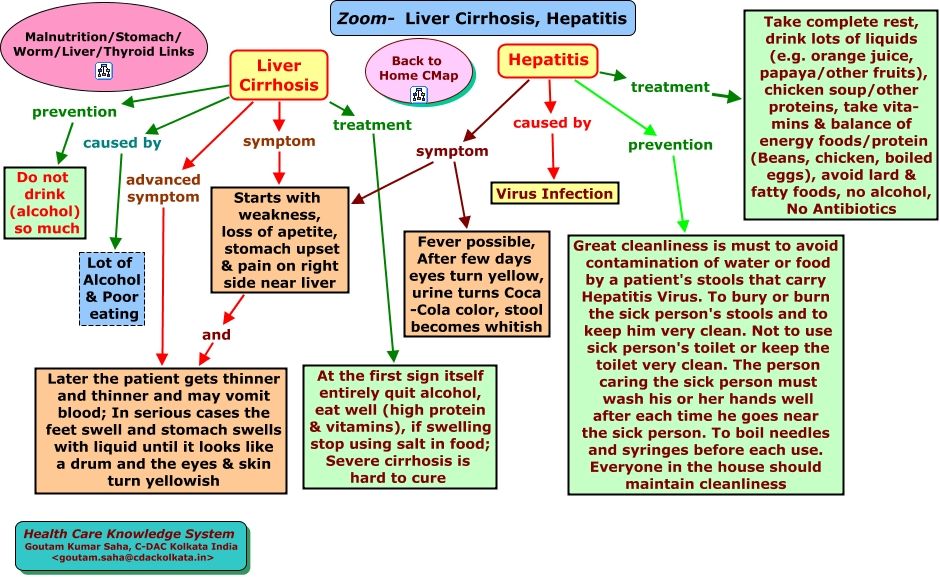 That is, the baby "returns" to the breast or bottle of formula.
That is, the baby "returns" to the breast or bottle of formula.
After all manifestations of an allergic reaction disappear, you can start re-introducing complementary foods. However, this time, scrupulously recording the baby's reaction to each product in a food diary. Complementary foods should be introduced with caution, offering the baby no more than one new product per week and excluding all bright vegetables and fruits for the first time.
The child is not eating!
Sometimes the little "negochuhs" bring overly impressionable parents to white heat, over and over again refusing any new food. This situation is complicated by the stories of friends from the playground or acquaintances from the thematic forum about the excellent appetite of their precious heir. And unfortunate young mothers go to all sorts of tricks, just to feed their native "little baby" with healthy vegetables, nutritious cereals and "sweet" fruits: they turn on cartoons for the child, the whole family, armed with toys, arranges circus performances, they try to scare the child, threatening the evil Babai, who will definitely take away everyone who does not finish the mashed potatoes from the jar.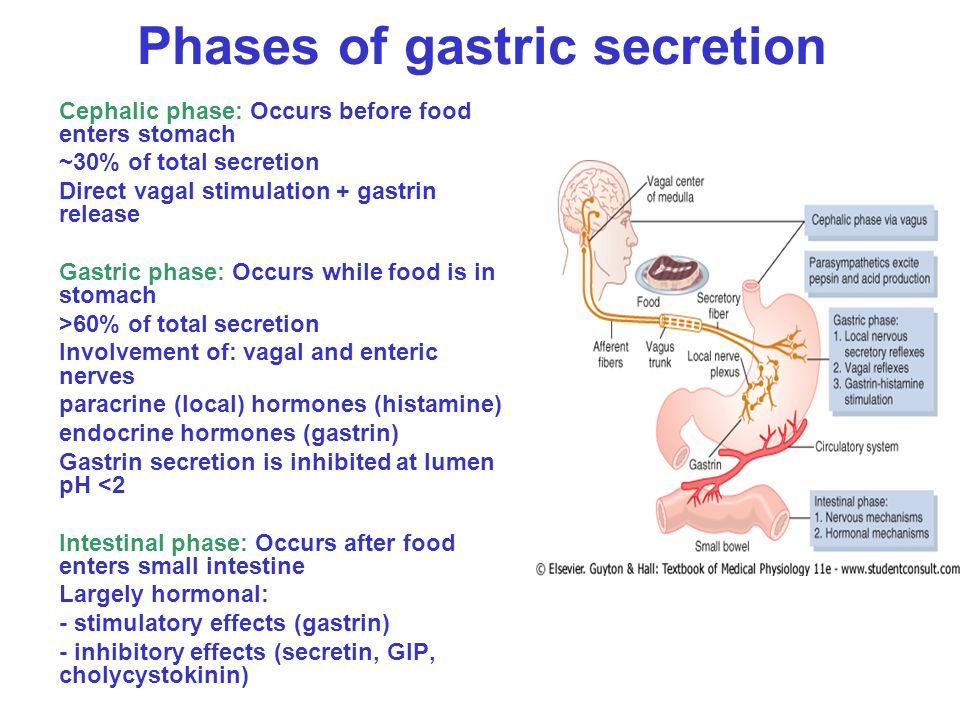
As a rule, all these "shamanic dances with a tambourine" around a plate of porridge or soup lead to the exact opposite result. The child's appetite never appears, and any attempt to seat him at the table without "musical accompaniment" turns into a uniform hysteria.
To avoid such troubles, all young mothers and fathers need to remember the main rule: never force-feed a child. Food is a natural need of the body, and your baby is not his own enemy and will not starve himself. It is quite possible that now he is simply not ready to get acquainted with "adult" food, and you should wait 1-2 weeks or even a couple of months with the introduction of complementary foods.
CV
Remember: a child of the first year of life, especially those who are breastfed, may well do without complementary foods. There is nothing abnormal or terrible about this. If the baby persistently rejects any offered food, you should listen to his opinion.
Girls! Let's do reposts.

Thanks to this, experts come to us and give answers to our questions!
Also, you can ask your question below. People like you or experts will give an answer.
Thank you ;-)
Healthy babies to all!
Ps. This applies to boys too! There are just more girls here ;-)
Like the material? Support - repost! We try for you ;-)
Gnomik.ru ©
Rules for feeding children
At 3 months of a child's life, digestive enzymes mature. At 3-4 months, local intestinal immunity and ingestion mechanisms are formed. From 6 months, mother's milk or formula cannot fully meet the needs of the growing body of the child for energy and nutrients, therefore, too late - after 6 months - the introduction of complementary foods is undesirable. At this time, breast milk also can no longer provide the grown-up child with the necessary amount of trace elements (especially zinc and iron). A monotonous diet can lead to growth retardation and inhibition of the development of such an important skill as chewing, which prepares the gums for teething.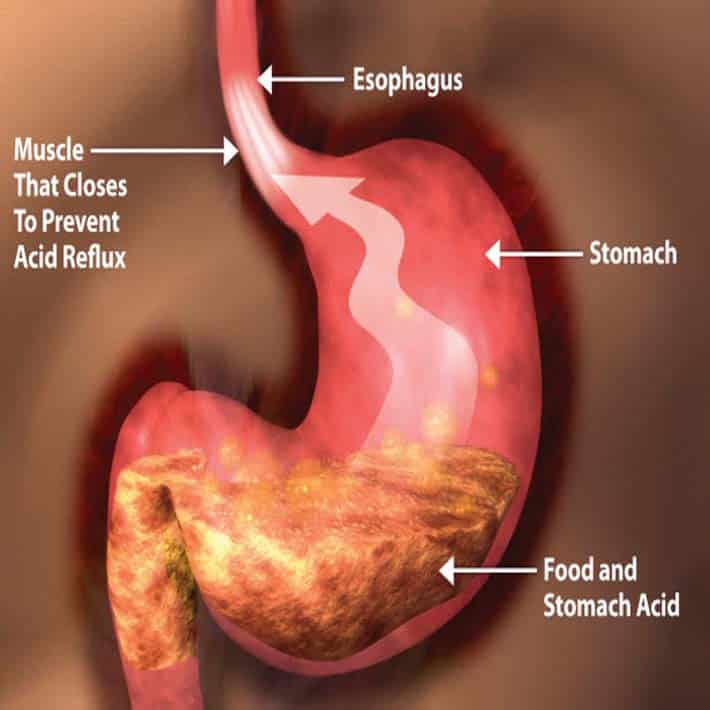 The lack of a positive perception of the child's new taste and texture of food inhibits psycho-emotional development.
The lack of a positive perception of the child's new taste and texture of food inhibits psycho-emotional development.
The introduction of complementary foods to children is advisable to start at the age of 4 to 6 months. The sequence of appearance of certain products and complementary foods in the child's diet depends on the state of his health and the capabilities of the digestive system. There are rules for the introduction of complementary foods.
Regulation No. 1
Graduality and dosage. During the week, the baby is given only 1 unfamiliar dish. Its initial dose may seem microscopic, but it is enough to know the reaction of the child's body to the product. If on the 1st day after the introduction of a new complementary food, the skin condition, temperature, consistency and color of the baby's stool will be without visible changes, then the next day the portion can be slightly increased.
“From 6 months, mother’s milk or formula cannot fully satisfy the needs of the growing body of the child for energy and nutrients, so too late - after 6 months - the introduction of complementary foods is undesirable.”
The first dish of the child can be, for example, vegetable puree. It is better to start with mashed zucchini, cauliflower, potatoes or pumpkin. The portion size depends on the age of the baby. Complementary foods should be introduced gradually: from ½ teaspoon in 1-2 weeks, increasing the portion to the age norm - 100-150 g. The 2nd week falls on the child's complete adaptation to a new dish. Only after that you can talk about combining vegetable dishes and start trying the 2nd complementary foods, which are already introduced somewhat faster (on average, 3-4 days). If an allergy or an upset stomach appears, then the introduction of complementary foods is stopped, and further nutritional actions are discussed with the pediatrician.
Regulation No. 2
Introduction time. Complementary foods should be given to the child in the morning and afternoon.
Regulation No. 3
The form. Unlike artificial feeding, complementary foods are initially offered to the child in an “adult” form, that is, the baby is fed with a small baby spoon.
Regulation No. 4
temperature and consistency. Mom's milk has a body temperature, so at the beginning of the introduction of complementary foods, all dishes for the baby should be warmed up or cooled to 36-37 degrees. Closer to 1 year, children adapt to the fact that food can have different temperatures. And then it is enough to ensure that the food is not too hot or cold for the baby.
“If an allergy or indigestion appears, then the introduction of complementary foods is stopped, and further nutritional actions are discussed with the pediatrician.”
The younger the child, the more liquid the food should be. As the baby's teeth erupt, the food becomes thicker and harder.
You can not introduce new complementary foods into the diet of a child who does not feel well. Colds, constipation and preventive vaccinations lower the body's resistance to the baby. During this period, his menu should be familiar and safe.
The child's complementary foods should not contain fruits, as they are allergenic, fatty fish and meat, seafood, nuts, honey, as well as salted, smoked, fried and canned foods.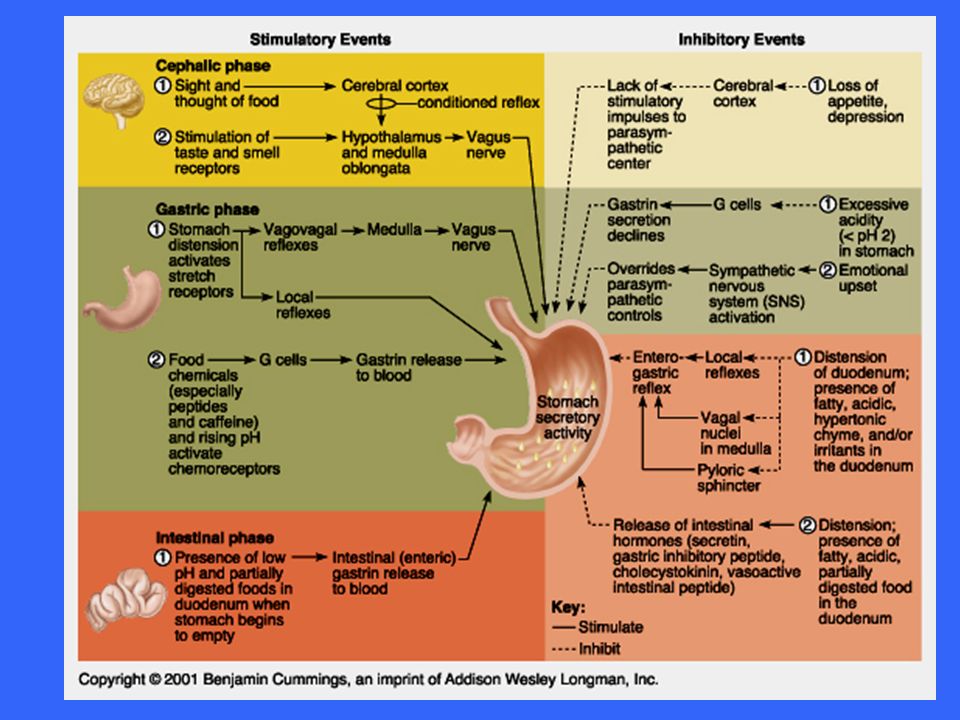
Usually, cereals for children under one year old are made from rice, buckwheat, oatmeal or corn grits. You should not start complementary foods with coarse cereals - pearl barley or millet. Gluten, a protein present in some cereals, can provoke diseases of the gastrointestinal tract and related disorders (changes in the intestinal microflora, allergic manifestations) in infants. Gluten is part of oatmeal and wheat flour, so it is not advisable to offer these cereals to a child under 6 months old. It is better to start the introduction of cereals with gluten-free cereals (rice, buckwheat and corn), from 5-6 months you can introduce oatmeal. If a child has a reaction, then it is best to limit these foods.
Do not fanatically measure the portion size eaten by the child. His body, guided by the wisdom of nature, in most cases knows how to eat right. Active appetite stimulation is needed in a limited number of cases.
The appearance of food plays a significant role in shaping the appetite of the crumbs - food should be liked, evoke positive emotions and a desire to eat it.